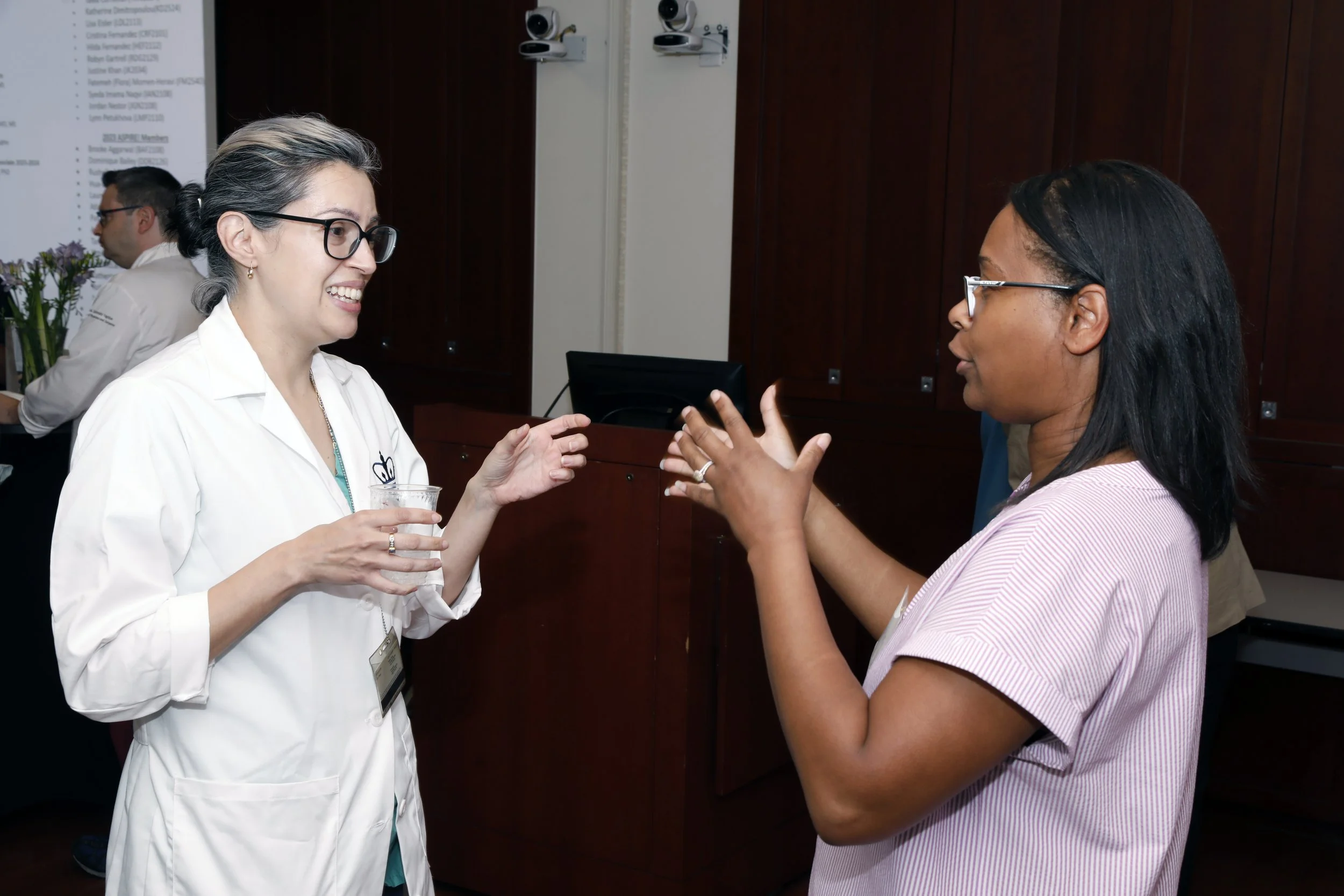About Us
The goal of ASPIRE! peer and near-peer mentoring program at the CTSA is to support early career faculty researchers from diverse backgrounds at Columbia University Irving Medical Center to enhance retention in academia, promote research career development, and strengthen mentorship satisfaction. Our group peer and near-peer mentorship approach fosters an atmosphere of support and collaboration through the following strategies:
Understanding and developing your academic identity
Enhancing skills for research career development,
Providing supportive peer and near-peer mentoring,
Increasing familiarity of Columbia research resources to support career development.
Creating safe spaces for career growth and advancement.
The ASPIRE! peer mentoring program will be tailored to participant needs based on responses to the application survey.
Interactive facilitated group sessions. The goal of these three 3-hour sessions is to increase awareness of research career development resources and strategies; network with peer and near-peer researchers; and increase confidence in success in an academic research career.
We will base topics on the needs assessment survey. Examples of prior topics include “Finding your motivation” and “Mentoring journey: Building the right relationships.” Participants are required to attend at least 70% of sessions to proceed with peer mentoring group matching.
Weekly peer and near-peer group and individual mentoring. We will form groups of 4-7 based on the needs assessment. Activities will be tailored to participant interests. ASPIRE! near-peer mentoring faculty will join some sessions to help resolve questions and provide an additional level of mentorship.
Weekly scheduled 30-minute peer and near-peer mentoring sessions to receive academic and career development support in small groups
Drop-in office hours with near-peer mentors available
Complete periodic session and program evaluation: To improve quality of current and future programming, we will ask for session and program feedback.
We are in the literature.
When our idea and group became part of the peer mentoring literature.
The power of peer mentorship in medicine
STEPHANIE LOVINSKY-DESIR, MD | PHYSICIAN | JANUARY 20, 2020

